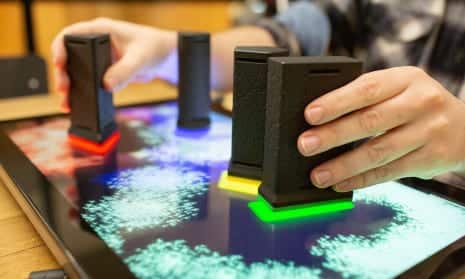A new touch-screen therapy tool could accelerate the recovery of patients who have experienced a stroke and change the way rehabilitation is delivered in hospitals and homes, RMIT University researchers suggest in a media release.
Designed for people with acquired brain injuries, EDNA is a digital rehabilitation software that delivers therapy through a series of fun and challenging therapeutic games via a touchscreen device.
Findings from a randomized clinical trial showed stroke patients who incorporated EDNA into their treatment programs experienced an improvement two to three times greater than those who received only conventional therapy, according to the release, from RMIT University.
The digital form of rehabilitation was intended to maintain patient engagement, improving compliance and recovery, says RMIT University lead researcher, Associate Professor Jonathan Duckworth.
“We designed EDNA so that patients could be doing therapy without it feeling like therapy,” he adds.
EDNA features a range of therapeutic games that involve tangible and graspable tools with augmented feedback, promoting brain plasticity to regain motor, cognitive and functional ability.
Performance data is then collected in the cloud, allowing therapists to remotely review the integrated data, monitor recovery and deliver tailored treatment programs.
While the results couldn’t yet be used to predict longer-term recovery, the findings were promising and showed the value of including EDNA as part of a therapy toolkit, Duckworth states.
“EDNA is the first upper-limb brain injury rehabilitation system to integrate clinic and home therapy to monitor recovery, so there’s great potential to transform the industry and improve outcomes for patients.”
The recent clinical trial, published in the Journal of NeuroEngineering and Rehabilitation, involved a specialized table-top touch screen.
A new study is now underway at Sydney’s Prince of Wales hospital using a portable version that allows for increased treatment frequency with independent therapy at home.
Principal investigator and neuropsychologist from the University of Sydney, Dr Jeff Rogers, shares in the release that the innovative technology had delivered benefits for stroke patients that had exceeded expectations.
“We’ve worked closely with patients in testing and designing EDNA to ensure it will actually be used and we’re really happy with the results,” he says.
Study co-author, Professor Peter Wilson from the Australian Catholic University, comments that a home-based therapeutic solution had the potential to reduce the number of weekly hospital visits and aligned with recent trends towards patient-centered rehabilitation.
“Patients can struggle to maintain therapy activities between sessions, so having a portable device to take home and use on their own could increase therapy uptake and speed up recovery,” he says.
[Source(s): RMIT University, MedicalXPress; photo credit: RMIT University]





